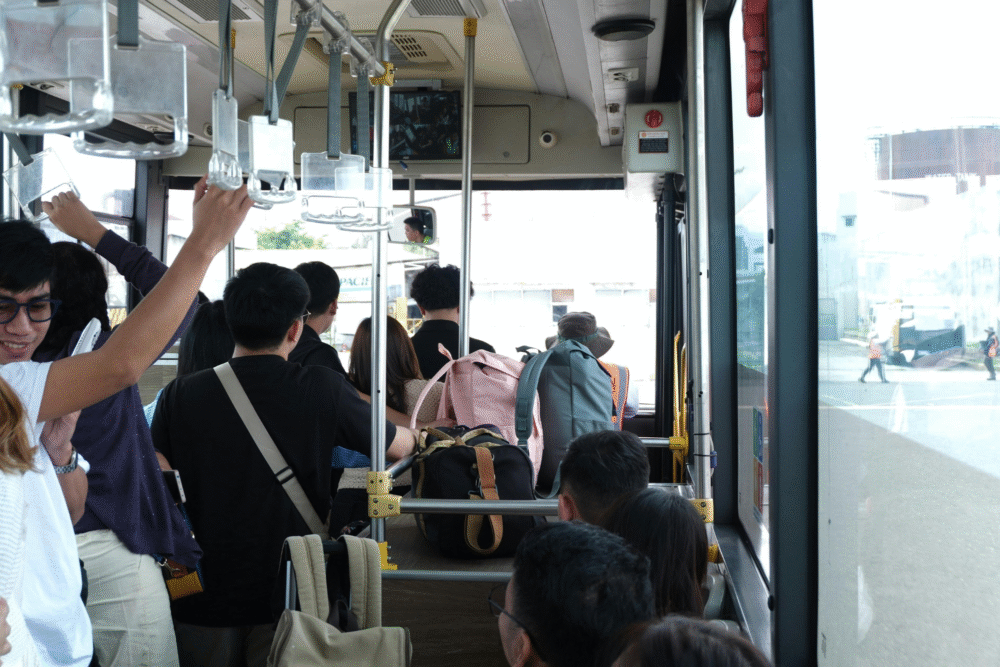It’s not about punishment—it’s about possibility.

Most people aren’t asking for yachts or private islands. They just want to be able to afford a doctor’s visit without anxiety, take a vacation once in a while, or send their kids to college without being buried in debt. But for decades, the tax code has favored those with extreme wealth, letting billionaires stash fortunes while everyday people scrape by. If they paid even a reasonable share, the impact on middle-class life could be massive—and deeply practical.
We’re not talking about fantasy spending or wild luxury. We’re talking about realistic upgrades to daily life that would give millions of people more breathing room, more stability, and more time to enjoy the things they already work hard for. These aren’t handouts—they’re investments in a stronger, more balanced society. The kind of upgrades that could change everything, if the richest people on Earth simply chipped in the way the rest of us already do.
1. Health insurance premiums would shrink instead of suffocating you.

Imagine opening a bill and seeing your premium go down instead of creeping higher every year. If billionaires contributed fairly, those tax dollars could fund a stronger public option—or at the very least, offset the obscene costs that insurance companies pass onto regular people, according to Diccon Hyat at Investopedia. We’re not talking about removing private healthcare entirely, just giving families a realistic alternative that doesn’t feel like financial punishment.
Lower premiums mean fewer medical bankruptcies, fewer skipped appointments, and less stress when your kid gets the flu. It also forces private insurers to compete, which usually translates to better coverage and more transparency. The system wouldn’t feel like it’s rigged to reward those at the top while squeezing everyone else dry. Instead, it would start to feel like it’s finally working for you.
2. Public schools could actually afford to inspire kids again.

Instead of scraping together funds for textbooks, teacher salaries, and working HVAC systems, schools would have the breathing room to focus on teaching—not just surviving, as reported by Michael Linden at The Guardian. If billionaires paid their share, local districts wouldn’t have to rely so heavily on property taxes, which punish poor neighborhoods and widen the gap between rich and struggling schools.
Better funding means smaller class sizes, up-to-date technology, well-stocked libraries, and enough counselors to actually support students. Teachers could focus on education instead of fundraising or burnout. Field trips, arts programs, and hands-on learning wouldn’t feel like luxury add-ons—they’d be part of the core experience. And kids in every zip code would get a fair shot, not just those lucky enough to live near a Whole Foods.
3. College tuition wouldn’t be a life sentence of debt.

Picture a world where students graduate and start building their lives—not digging out of a financial hole. If billionaires paid a fair share in taxes, public universities could reduce or eliminate tuition for most students, making college more about learning and less about crushing debt, as stated by the people at Fight Inequality. Families wouldn’t have to choose between a diploma and decades of stress.
It also levels the playing field. The kid whose parents can’t help with college would have the same shot as the one born into money. And instead of students chasing high-paying jobs just to survive loan repayments, they could explore paths that actually align with their values. A smarter, less stressed generation benefits everyone—not just the students themselves.
4. Childcare wouldn’t feel like a second rent payment.

Right now, families often spend more on daycare than they do on housing. That’s not just a parenting issue—it’s an economic crisis. With a fair tax contribution from the wealthiest Americans, we could expand access to affordable, high-quality childcare and early education across the country, according to Gabriel Zucman at ABC News. That means more parents—especially mothers—could return to work without sacrificing most of their paycheck.
Affordable childcare is infrastructure. It keeps families stable, businesses staffed, and communities thriving. It would mean fewer impossible choices and more time spent focusing on what matters. And instead of patching together a child care schedule with favors and hope, parents could count on safe, consistent care that doesn’t feel like a financial trap.
5. Paid family leave wouldn’t be treated like a luxury.

Having a baby, caring for a dying parent, or recovering from surgery shouldn’t mean risking your job or your income. But in the U.S., many workers still face that exact dilemma. If billionaires paid their share, we could fund universal paid family and medical leave that allows people to take care of each other—and themselves—without financial fear.
It’s not just about being humane. Paid leave improves public health, reduces employee turnover, and keeps people connected to the workforce. Middle-class workers wouldn’t have to choose between caregiving and stability. And in moments that already feel overwhelming, they could lean on a system that actually shows up for them. Not as a favor—but as a basic support structure.
6. Transit systems could run like they’re built for humans.

If billionaires contributed properly, city buses wouldn’t feel like punishment and trains wouldn’t break down every other day. We could invest in clean, safe, and reliable public transit that makes life easier for millions. No more waiting 40 minutes in the cold for a ride that might never come, or squeezing into overpacked cars just to get to work on time.
It’s also an environmental win. Better transit means fewer cars, less pollution, and cities that are more walkable and livable. That’s good for workers, students, and the planet. Instead of pouring public money into bloated highway projects or patchwork solutions, we could actually build systems that prioritize people—especially those who don’t own a Tesla.
7. Housing costs wouldn’t feel like quicksand.

When rent eats up half your paycheck and buying a home feels like science fiction, something’s broken. With a fair tax structure, we could invest in affordable housing initiatives, cap runaway rent hikes, and finally start treating shelter as a human right—not a game of profit. Middle-class families shouldn’t have to fight to stay in the neighborhoods they grew up in.
More public investment would mean more options—co-ops, community land trusts, and first-time buyer support that actually makes a difference. The market wouldn’t be so tilted toward landlords and investors hoarding properties. Instead, the goal would be stability, not speculation. And the idea of “home” could return to something meaningful instead of financially terrifying.
8. Retirement could feel earned, not exhausting.

People who work their whole lives shouldn’t be punished with poverty once they stop. With billionaire-level contributions helping fund Social Security and public retirement programs, more Americans could step away from work with dignity instead of anxiety. Retirement wouldn’t mean stretching every dollar or working part-time into your 70s just to afford groceries.
Expanded funding would also allow for better elder care, stronger community support, and more robust health services. It’s about recognizing that after decades of labor, people deserve to rest—and not feel like they’re a burden or an afterthought. Retirement should be a chapter of peace, not a constant hustle to stay afloat.
9. Mental health care could be as normal—and affordable—as a checkup.

Therapy shouldn’t be a luxury, and mental illness shouldn’t be something people try to tough out alone. With more public funding supported by fair taxation at the top, we could expand access to affordable mental health care across every community. That means shorter waitlists, more providers, and fewer people slipping through the cracks.
It would also destigmatize care by making it routine and accessible. People wouldn’t have to weigh emotional suffering against the cost of a session. Schools could have real counselors. Emergency services could rely less on law enforcement and more on mental health professionals. Everyone benefits when care is accessible—not just the people struggling most.
10. Working-class jobs could come with actual safety nets.

If billionaires paid their taxes like the rest of us, we could fund stronger unemployment benefits, sick leave, wage protections, and labor enforcement that doesn’t just exist on paper. Middle-class and low-income workers would have a buffer when life throws a curveball—whether that’s a layoff, an injury, or a global crisis.
It’s not about asking for handouts. It’s about creating a system where hard work actually comes with protection. No one should fall into poverty because their job ends or their body breaks down. A safety net supported by real revenue—especially revenue that reflects the wealth hoarded at the top—means fewer lives shattered by a single bad week. And it means a society that treats its workers like people, not parts.
